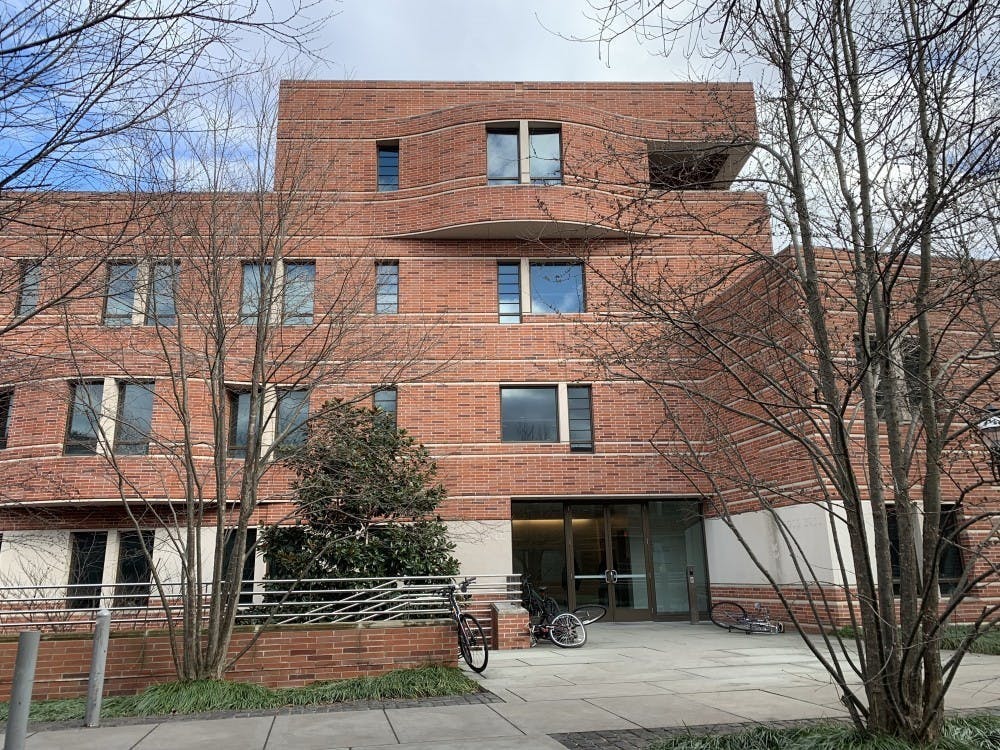In an email sent out on Tuesday, March 31, on-campus students residing in Butler College’s 1967 Hall, 1976 Hall, and Yoseloff Hall were asked to relocate to Bloomberg Hall by Friday, April 3, in order to “secure spaces for self-isolation.”
The email sent out by Butler’s Director of Student Life Joe Rolón told students to expect an “increased presence” of workers in their dormitories as Housing and Building Services begins to “clean, prepare and turn over” rooms.
This sudden move is part of the University’s efforts to respond to the COVID-19 pandemic. On March 25, students residing in Forbes College were informed of similar measures.
“The consolidation is ... designed to support the safety and well-being of students remaining on campus and allow them to easily obtain their meals from the Butler/Wilson dining hall,” wrote Deputy University Spokesperson Mike Hotchkiss, in an email to The Daily Princetonian. “The new assignments are typically rooms that were similar to the students’ academic year assignments and adhere to the state’s COVID-19 guidelines for social distancing.”
They have been relocated to Bloomberg Hall and dormitory buildings in Whitman College, so that the first floor of the Forbes Main Inn can house students required to self-isolate.
As of March 31, four students on campus are in self-isolation, as they await the results of COVID-19 testing.
Igor Medvedev ’22 had been living in a quad in 1967 Hall with one of his remaining roommates before they were both relocated to Bloomberg Hall. The email indicating students’ new rooms was sent at 7 a.m. on Thursday and required students to move out by 5 p.m. on Friday.
“At first I was confused and didn’t know why we would have to move or didn’t understand,” Medvedev said. “I was moving while I had a class so the timeline wasn’t the best, but it turned out fine because the moving agency did a lot of the stuff. I lost some time packing and unpacking, and it was stressful, but they tried to help us.”

He was placed on a floor in Bloomberg Hall with 10 others, which he viewed as a “decent number — not even close to being full.”
“We understand that the moves can be an inconvenience for students,” wrote Hotchkiss. Housing and Real Estate Services offered moving assistance for the relocated students through Bohren’s Moving and Storage agency “to make the moves as minimally disruptive to the students as possible.”
Medvedev, however, had some health concerns about moving, and opted to pack his own belongings rather than risk potential exposure to the virus by using a storage agency.
Hotchkiss wrote that University Health Services (UHS) has focused on caring for students and staff with health issues related to COVID-19, as well as other health concerns.

“The University is supporting students on campus who need to self-isolate, providing medical support, appropriate space in Forbes Main Inn, food delivery and other needed services,” Hotchkiss wrote.
Other colleges and universities such as Tufts University, Middlebury College, New York University, and Yale University have been preparing dormitories or other vacant campus establishments to serve as medical facilities in the fight against the pandemic.
The University has not announced such a policy but has assisted in the fight against coronavirus in other manners. Labs donated personal protective equipment and other supplies to healthcare workers. According to Mayor Liz Lempert, the University has provided the greater Princeton community with resources including funding for meals for food-insecure residents.
“Institutions across the state of New Jersey, including Princeton, have been asked to examine how they might further support the state’s COVID-19 response,” Hotchkiss wrote to the ‘Prince.’
“We are doing so and working hard to be ready should the need arise, all the while making sure we continue to be able to provide for the needs of our students on campus,” he added.








